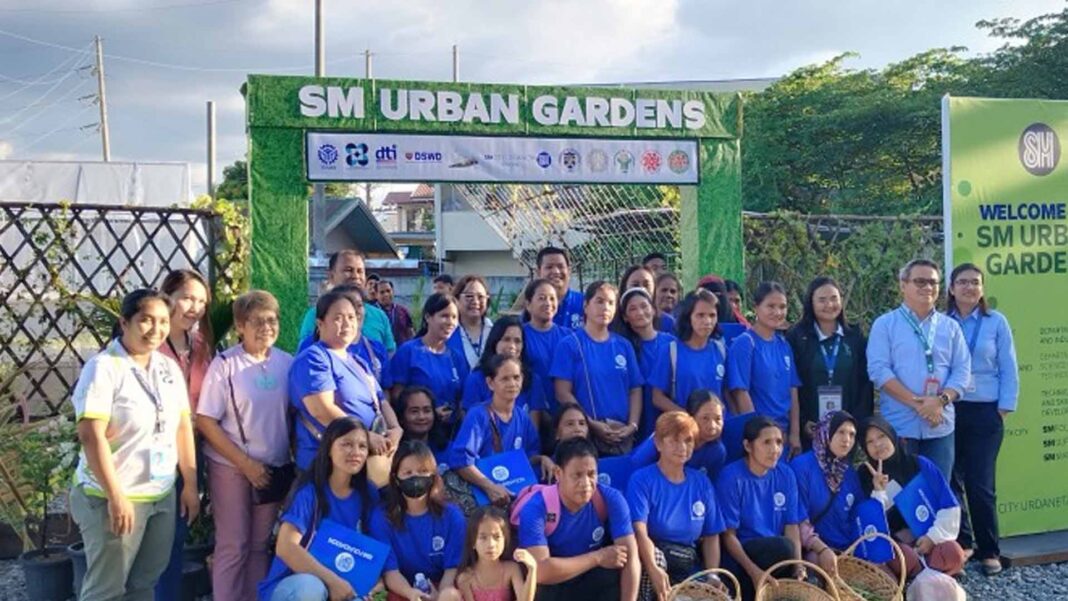Twenty-seven indigent families from Barangay Nancayasan, this city, that are members of FARMaganda association are set to receive PHP500,000 as start-up capital for their organic farm in line with the government’s food sufficiency bid.
The funding will come from the Department of Social Welfare and Development’s (DSWD) sustainable livelihood program.
The beneficiaries are graduates of Kabalikat sa Kabuhayan (KSK) project of SM Foundation, Inc. and national government agencies like the Department of Agriculture, Department of Trade and Industry (DTI), DSWD, Department of Science and Technology (DOST), Agricultural Training Institute – Ilocos Region, and the Technical Education and Skills Development Authority.
FARMaganda president Maricel Badua said the funding will be used to rent a 6,000 square-meter land and to purchase equipment.
“Nagpapasalamat kami sa chance na makasama sa programa at marami [kaming] natutunan patungkol sa urban gardening. Pagyayamanin namin ng mapabuti at umasenso ang aming grupo. Mag-uumpisa kami na may tulong mula sa DSWD (We are grateful for the chance to be part of the program and we learned a lot about urban gardening. We will do our best to enrich and develop our group. We are going to start with the help of the DSWD),” she said.
The group members are currently selling their produce at the weekend market of SM City Urdaneta Central and in their business proposal, they stated their plan to sell to government agencies near their village.
The excess from their produce will be processed with the help of the DOST and DTI while some will be donated to feeding programs.
“We also plan to join trade fairs with our organic products,” Badua said.
DTI Pangasinan director Natalia Dalaten said the program is among the ways to boost food production and help the families increase their income.
“We are also aiming to make them agripreneurs. They are not just farmers now but should also learn to do business,” she said.
SM Foundation, Inc. Assistant Vice President Cristie Angeles said the inter-agency cooperation was strengthened further to help the families.
“We will meet quarterly with inter-agency partners to monitor them. Through this, we could easily see what interventions they need and we aim that they will help themselves primarily,” she said. (PNA)



